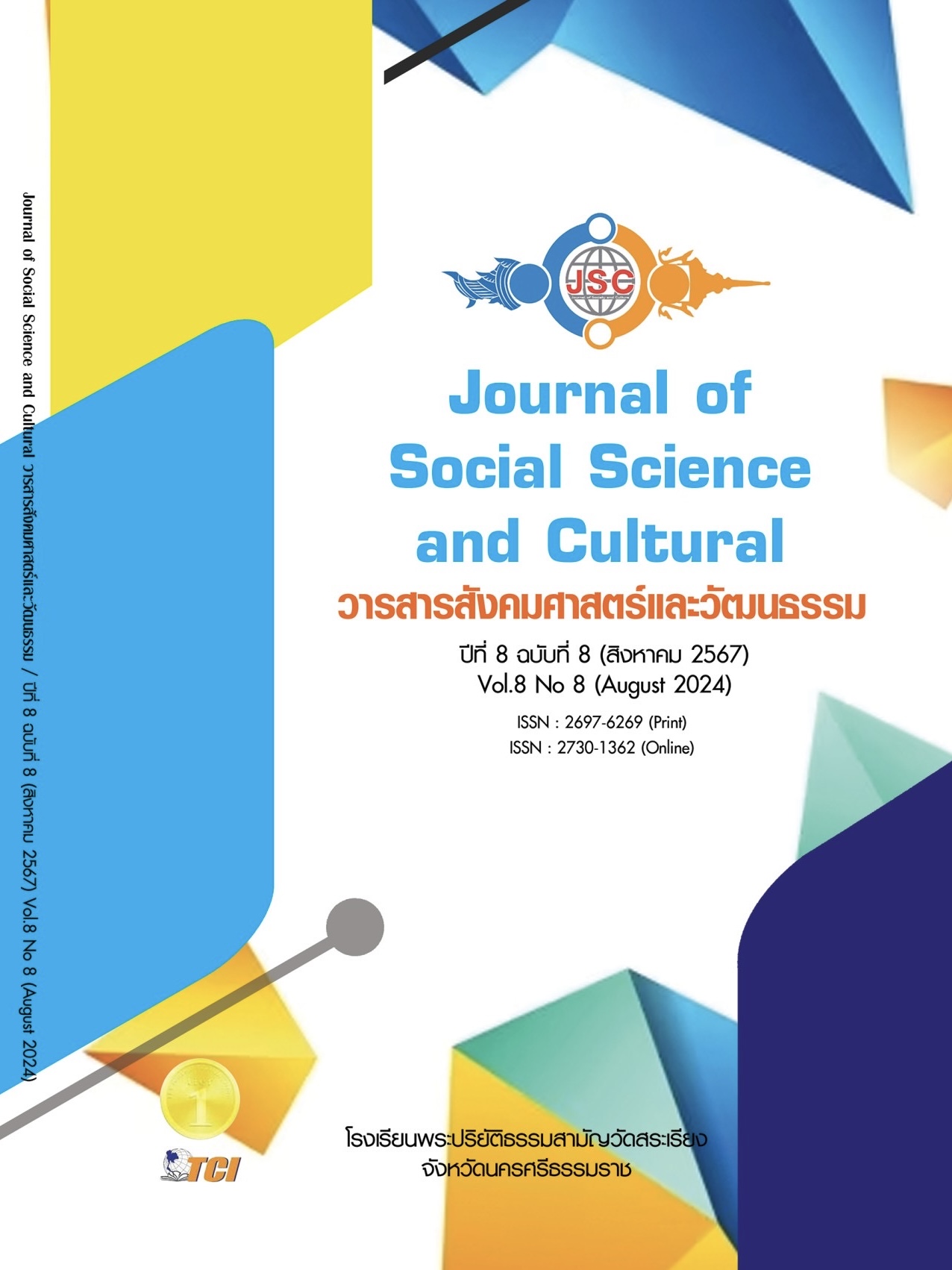STUDY ON THE LEGISLATION OF BUDDHISM IN THE THAI CONSTITUTION
Main Article Content
Abstract
This research aims to: 1) explore the connection between the state and Buddhism, and how the Buddhism is legitimated by the constitution; 2) compare the constitutional recognition of Buddhism in Thailand and other countries; 3) study the legislation of Buddhism in the Thai constitution; and 4) analyze the issues and propose guidelines for legislation of Buddhism in the Thai Constitution. This study is a qualitative research, gathering information from relevant documents and using comparative theory along with the facts and context of Thai society as criteria for analysis. The research findings are as follows: 1) Cambodia is a religious state as it constitutionally declares Buddhism as the national religion. Sri Lanka, Myanmar, and Thailand are secular states because they do not declare Buddhism as the national religion, but they are secular states that give special importance to Buddhism; 2) the Cambodian constitution, Article 43, designates Buddhism as the national religion. The 2008 Myanmar constitution, Article 361, acknowledges the special status of Buddhism, which the majority of the population follows. The Sri Lankan constitution, Article 9, states that the state must give Buddhism the foremost place. The 2017 Constitution of the Kingdom of Thailand requires that the King must be a Buddhist, as stated in Article 7; 3) the Thai constitutions of version 1997, 2007, and 2017 have shown progressive development in legislation of Buddhism into the constitution, particularly the current constitution (2017), which enshrines the intention of recognizing Buddhism as the national religion in Article 67; 4) the 2017 Constitution of the Kingdom of Thailand, Article 7, requires that the head of state be a Buddhist, and Article 67 is intended to encompass the promotion, support, protection, and prevention of actions that could undermine Buddhism, making the constitutional recognition of Buddhism appropriate to the context of modern Thai society.
Article Details
References
กันต์ แสงทอง และภัสสรา บุญญฤทธิ์. (2561). รัฐกับศาสนาความไม่ชัดเจนของรัฐไทยในความเป็นรัฐโลกาวิสัยหรือรัฐศาสนา. วารสารสังคมศาสตร์ มหาวิทยาลัยมหามกุฎราชวิทยาลัย, 1 (1), 81-92.
คณาจารย์ มหาวิทยาลัยมหาจุฬาลงกรณราชวิทยาลัย. (2559). พระพุทธศาสนากับการเมืองการปกครอง (Buddhism and Politics). พระนครศรีอยุธยา: มหาจุฬาลงกรณราชวิทยาลัย.
ธีระพล โชคนำชัย. (2555). ปัญหาการบัญญัติศาสนาประจำชาติในรัฐธรรมนูญ ศึกษาเปรียบเทียบจากรัฐธรรมนูญของประเทศต่าง ๆ. ใน วิทยานิพนธ์นิติศาสตรมหาบัณฑิต สาขาวิชานิติศาสตร์. มหาวิทยาลัยธุรกิจบัณฑิตย์.
พระสมพงษ์ พูลสุข. (2553). บทบาทของพระสงฆ์ในการผลักดันให้มีการบัญญัติพระพุทธศาสนาเป็นศาสนาประจำชาติ พ.ศ. 2537 - พ.ศ. 2550. ใน วิทยานิพนธ์รัฐศาสตรมหาบัณฑิต สาขาวิชารัฐศาสตร์. มหาวิทยาลัยสุโขทัยธรรมาธิราช.
รัฐธรรมนูญแห่งราชอาณาจักรไทย. (2540). ราชกิจจานุเบกษา เล่ม 114 ตอนที่ 55 ก หน้า 1-99 (11 ตุลาคม 2540).
รัฐธรรมนูญแห่งราชอาณาจักรไทย. (2550). ราชกิจจานุเบกษา เล่ม 124 ตอนที่ 47 ก หน้า 1-127 (24 สิงหาคม 2550).
รัฐธรรมนูญแห่งราชอาณาจักรไทย. (2560). ราชกิจจานุเบกษา เล่ม 134 ตอนที่ 40 ก หน้า 1-99 (6 เมษายน 2560).
วัชระ งามจิตรเจริญ. (2552). พุทธศาสนาเถรวาท. (พิมพ์ครั้งที่ 2). กรุงเทพมหานคร: มหาวิทยาลัยธรรมศาสตร์.
ศุภณัฐ บัวกลาง. (2559). ความเป็นกลางของรัฐกับเสรีภาพในทางศาสนาและความเชื่อ. ใน วิทยานิพนธ์นิติศาสตรมหาบัณฑิต สาขากฎหมายมหาชน. มหาวิทยาลัยธรรมศาสตร์.
สมคิด เลิศไพฑูรย์. (2548). กฎหมายรัฐธรรมนูญ หลักการใหม่ตามรัฐธรรมนูญแห่งราชอาณาจักรไทย พุทธศักราช 2540. กรุงเทพมหานคร: มหาวิทยาลัยธรรมศาสตร์.
สมบูรณ์ สุขสำราญ. (2527). พระพุทธศาสนากับการเปลี่ยนแปลงทางการเมืองและสังคม. กรุงเทพมหานคร: จุฬาลงกรณ์มหาวิทยาลัย.
อนุภูมิ โซวเกษม. (2561). การบริหารองค์กรสงฆ์ในประชาคมอาเซียน. กรุงเทพมหานคร: เจพริ้นท์.


